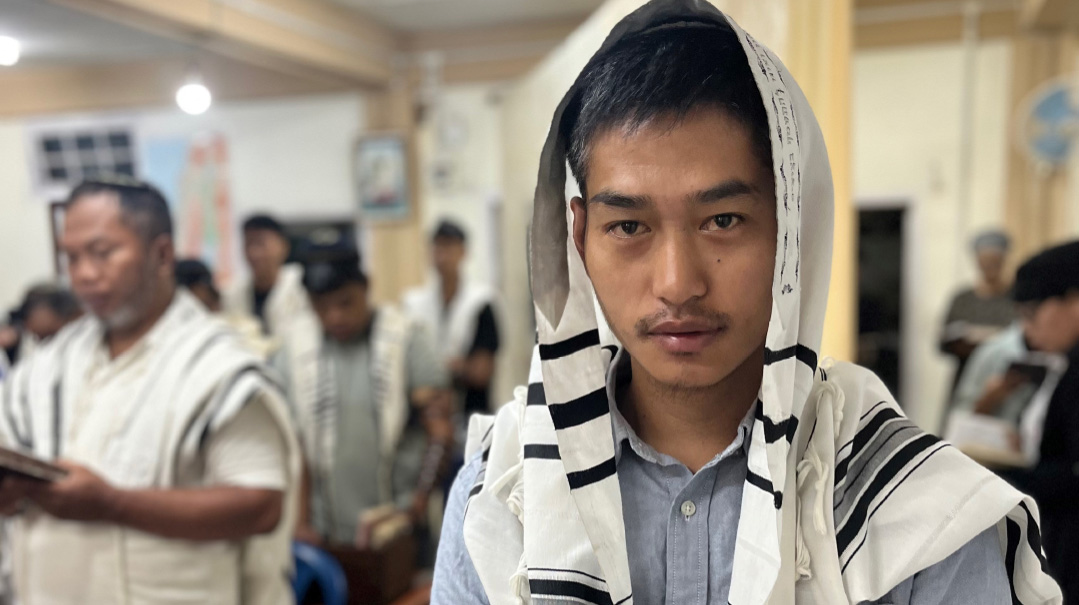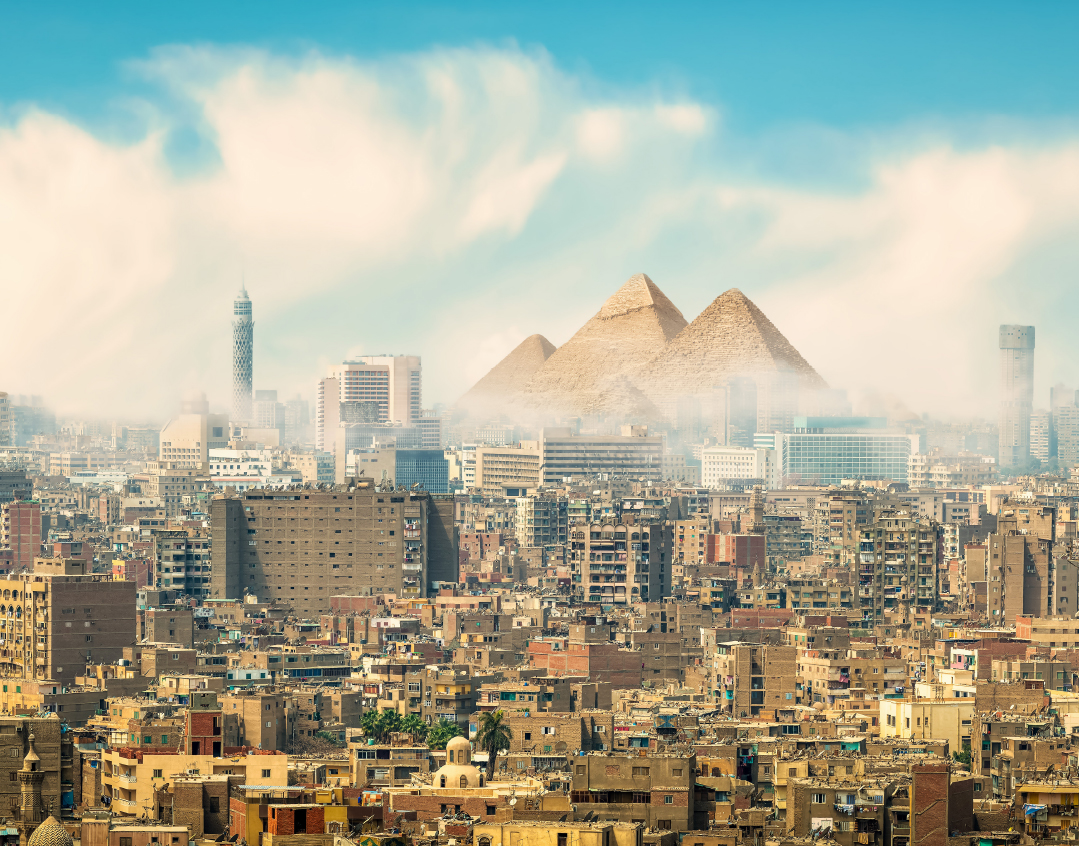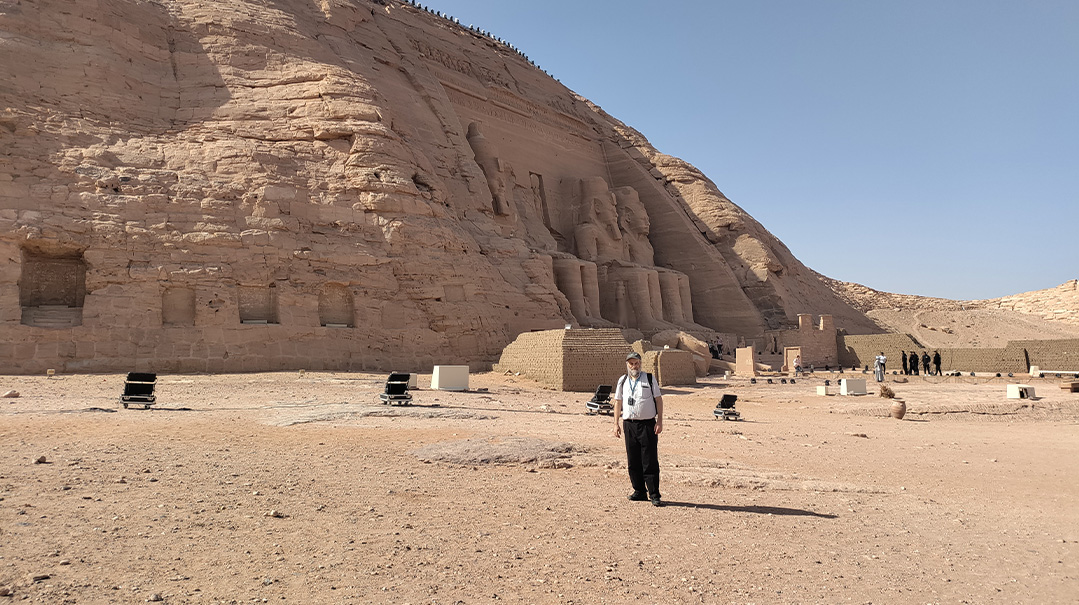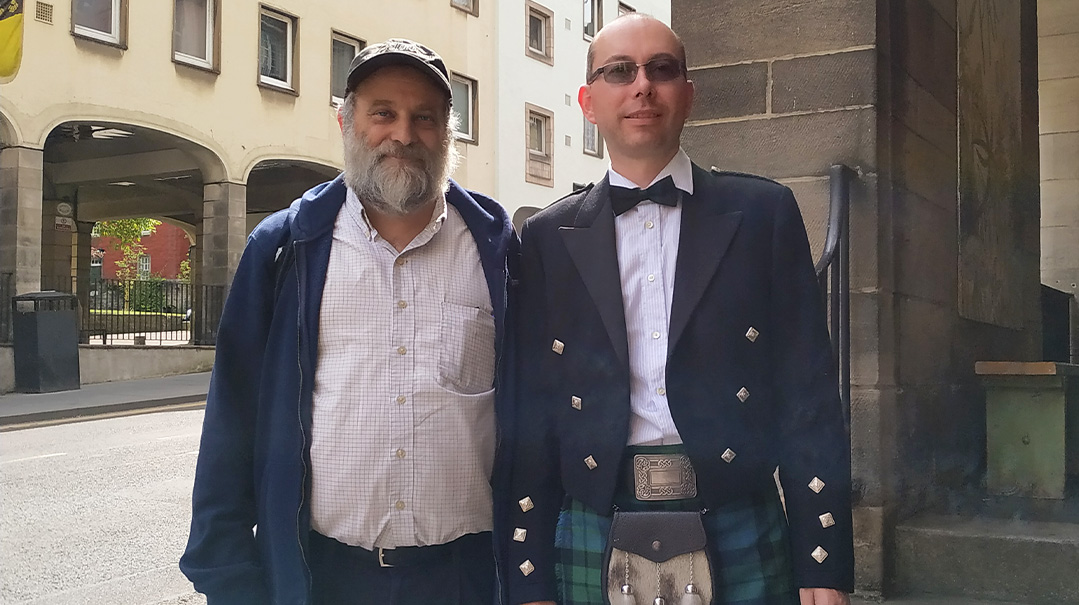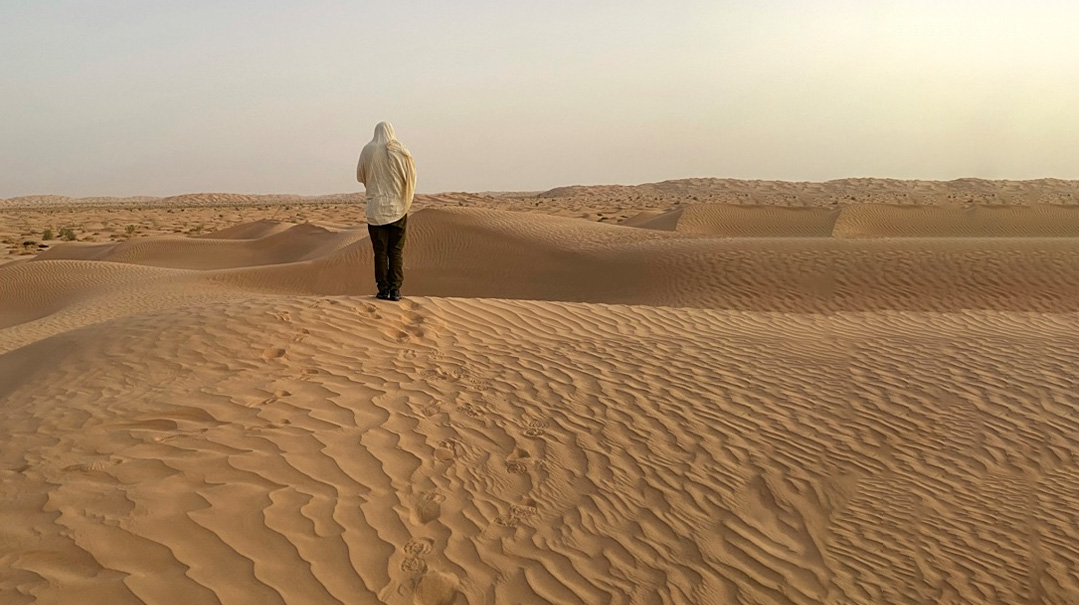Savannah Seder
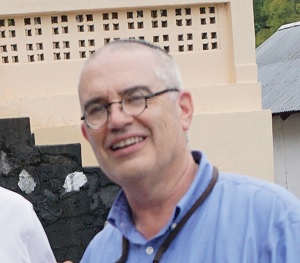
How did a clandestine Jewish community in the shadow of Mount Kilimanjaro stay under the radar for so many decades?
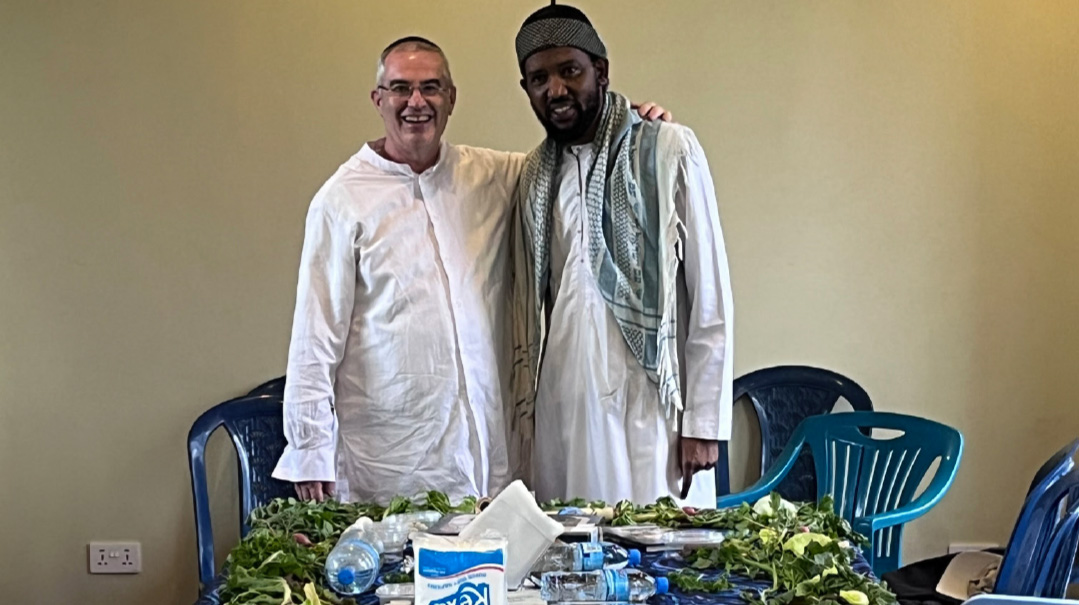
Text and photos: Ari Greenspan
W
ith no kids at home for Pesach, I hesitantly floated the idea to my wife of going away for the holiday. No, I wasn’t talking about a five-star hotel on the Amalfi coast or a deluxe kosher resort in the Caribbean. This “vacation” would involve sleeping in shacks and navigating the muddy roads in the shadow of Mount Kilimanjaro. For some reason I can’t fathom but am still grateful for, my wife agreed to spend last Pesach in Arusha, Tanzania, together with a community of secret Yemenite Jews.
When I began toying with the idea of visiting our friend Yehudah Kahalani in his Tanzanian community over Pesach — Ari Zivotofsky and I had spent time with this fascinating leader of an underground Jewish community the year before — I knew it would take some convincing. Pesach is challenging enough without having to kasher a foreign kitchen in a country where there’s no hashgachah on anything. But Shari is more than a good sport and understood that while it wouldn’t be easy, the halachic adventure would be something to remember for the rest of our lives.
Under the Radar
If you’re knowledgeable about African geography, you probably associate the East African country of Tanzania with Mount Kilimanjaro — the world’s highest freestanding mountain, nomadic Maasai warriors with their bright red wraps, or the great Serengeti plains with its herds of elephants, lions, giraffes, and other wild game.
What you probably won’t imagine is that there is an authentic but essentially unknown Jewish community right there in Arusha, Tanzania — a kehillah concealed for years from mainstream Jewry, whose reemergence after having gone underground is due to a dedicated young attorney and university lecturer named Yehudah Amir Kahalani.
Yehudah Kahalani (his local Tanzanian name is Peres Parpaih) is fulfilling the deathbed promise he gave his father, a man well-versed in the Yemenite traditions of his ancestors, who charged Yehudah with a mission before he died in 2010: Keep this Jewish community alive.
But how did these Jews manage to stay under the radar for so many decades? It stared back in the 1880s, when a little-known community of Yemenite Jews crossed over the Gulf of Aden into East Africa in search of financial opportunity. According to Yehudah, his own Yemenite ancestors came to Arusha from the Tanzanian offshore island of Zanzibar, where they’d set themselves up as traders. And, hidden in the deep African hills, was their small synagogue.
Due to surrounding hostilities, these Jews kept a low profile, until the community finally scattered in the 1960s in response to aggressive missionary activity, religious persecutions, and anti-Israel sentiment that came on the heels of Tanzania’s independence from Britain. Many Jews left the country, and those who remained went underground with their Jewish identity.
The older generation kept in touch after they were dispersed, and some members never stopped practicing Judaism. But many younger people didn’t even know their parents and grandparents were Jewish. All they knew was that their family didn’t work on Saturday, they were vegetarian, and they were forbidden to eat meat at their friends’ homes.
And that’s how Yehudah Kahalani grew up as a secret religious Jew in Tanzania, and why I had a strong desire to see his minhagim on Pesach.
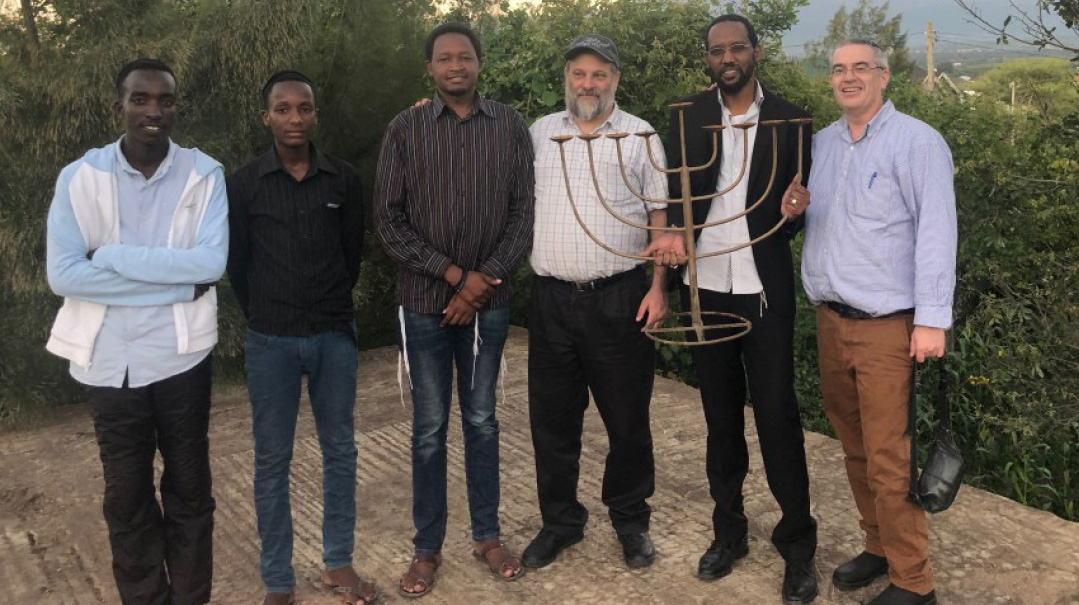
When we first met Yehudah Kahalani (second from right) and his resurrected community on the foothills of Mount Kilimanjaro, I knew I’d be going back for Pesach – and my wife was a real sport about it
Back to Tradition
Throughout our travels, we’ve seen many groups who claim to be Jewish, have Jewish ancestry, or come from the Lost Ten Tribes, and so we approach every encounter with some skepticism. That’s why we were so amazed by Yehudah’s Jewish knowledge: Both his father and grandfather obviously imbued a love of Judaism in his heart, teaching him Yemenite prayers and tunes in a dialect similar to the unique Yemenite Hebrew pronunciation that is to be found in Yemenite shuls around the globe. It was hard to believe that this man in his forties never had any kind of formal Jewish education and never lived in a normative community.
Yehudah is a successful, well-connected lawyer, as well as a lecturer at Mount Meru University. He told us that he often appears in court where one is obligated to uncover his head, yet a Muslim judge was sympathetic to his hesitation and permitted him to wear a yarmulke. He’s not shy about walking around town with his yarmulke and tzitzis.
In recent years, in fact, the Tanzanian government has become quite pro-Israel, making Yehudah and others like him comfortable coming out publicly as a Jew. Yehudah says there are many others like him, but they’ve either emigrated, assimilated, or are still afraid to surface. Still, it’s been 13 years since his father passed away and even longer since he was an active community leader, but Yehudah cannot renege on the charge his father gave him to preserve the traditions, reunite the people, and restore the sefer Torah.
To fulfill his father’s will, Yehudah purchased land on the outskirts of the city of Arusha where the old shul used to be located, and today he continues to spend a good deal of his personal funds to boost the community. He built a small shul and beis medrash in his yard (every day Yehudah leads the davening out loud and reads the Torah for the small congregation), and claims that several dozen kehillah members are “very religious and keep Shabbat.” His community is welcoming, with one caveat: No driving there on Shabbos or Yom Tov. And so he bought land adjacent to his house and sets up tents for his many Shabbos guests, while his wife Efrat cooks for the crowd.
There can be up to 20 guests on a regular Shabbos — most of them extended family, plus some young men and boys. All have some type of Jewish connection, and although their lineage can’t always be precisely traced, Yehudah says he’s careful not to accept anyone who is explicitly not Jewish.
While many have relocated, Yehudah says that for now, at least, he’s staying put. The community needs him, he says, and as long as most of them aren’t going anywhere, he’ll stay with them. But one thing he realized was that in order to lead, he’d have to learn, and do it within the context of mainstream Judaism. That’s why he reached out to “Partners in Torah” — he needed a chavrusa. He was partnered with Rabbi Yerachmiel Landy of Passaic, New Jersey, and the two of them have been learning for half an hour every day for the last five years. I, too, have been learning with Yehudah weekly for several years.
Yehudah and his wife Efrat, with their three daughters aged nine to 16, maintain a kosher home, something not trivial in Tanzania. Their kitchen has fleishig and milchig sides, although due to the difficulty in obtaining kosher meat, the fleishig side is rarely used. Some of the products in the Kahalani kitchen are imported from South Africa and certified by the South African beis din, and he’s persuaded the local supermarket owner to stock more such products.
It’s a bit surprising, actually, because it was just over a decade ago that Yehudah announced publicly that he was a Jew — the first overt Jew in the country. When Ari Z. and I first met Yehudah, we were impressed by his devotion to the Torah of his father and grandfathers, quoting midrashim, Tanach, and Gemara stories, and halachah and mesorah that he’d learned from his father. I was looking forward to seeing how that mesorah plays out on Pesach.
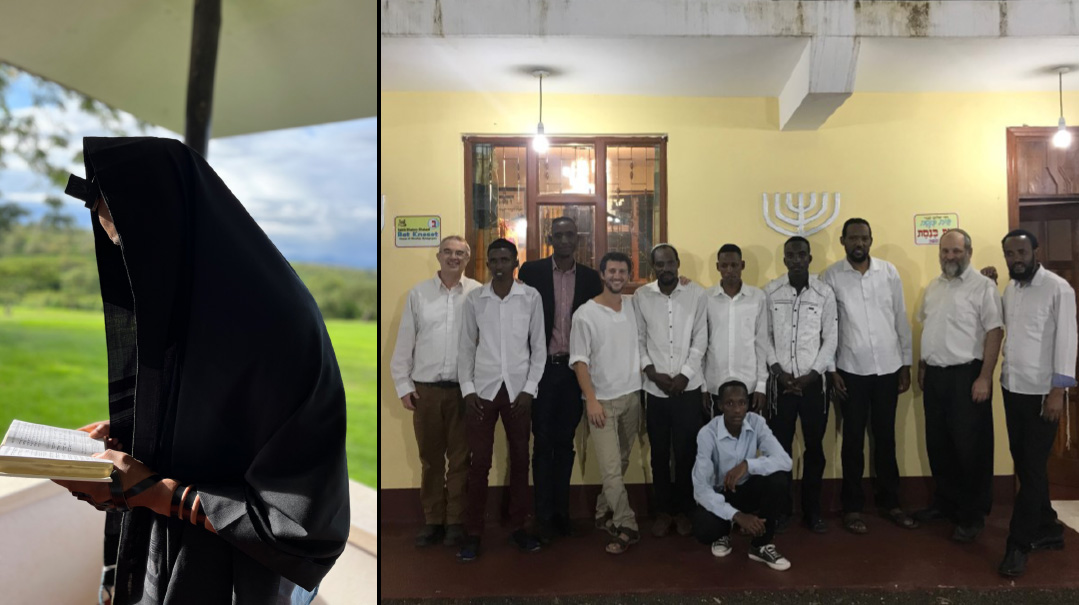
For now, as long as the community needs him, Yehudah says he’s staying put. (Left) In accordance with ancient family minhag, he still davens with a black Yemenite tallis
Wake up to the Coffee
A few nights before the holiday, Yehudah and his wife took us to spend the night in a coffee plantation, the owner of which is his friend. Thousands of Africans live on the plantation working thousands of acres of coffee beans. Many of us coffee drinkers never give a thought to the energy and effort that goes into growing those beans. According to legend in neighboring Ethiopia, a goat herder noticed his flock eating the ripe berries of the coffee plant and saw that they had tremendous energy afterward. The East African altitude and soil makes for perfect growing conditions, and each plant is treated like a treasure — constantly being checked for disease, pruned, and fertilized. Once the beans are perfectly ripe, they’re harvested by hand, washed, graded by size and left to dry before being put into 50-pound sacks to be shipped to the roasters. Yehudah gave me some coffee made by the huge Barakah coffee company, which he says was owned by Jews (the Brachah family) before nationalization.
We stayed in the plantation owner’s large, 100-year-old house, where Yehudah and I sat and learned Torah over a spectacular view. Recently wild elephants had to be chased off the plantation in order not to damage the crops, and we spotted an occasional lion and a seemingly endless number of monkeys in the trees. We woke to the sound of dozens of baboons running along the roof making a crazy racket, but that didn’t stop us from davening Shacharis, with Yehudah wearing a unique tallis. The Yemenite Jews, back in Yemen, had the custom of wearing black talleisim. Yehudah is one of the few still doing that.
Making Seder
Now it was time to get down to serious Pesach prep. Yehudah had imported some matzah and we brought an entire suitcase of food and matzah as well, but I also brought him some shmurah flour — flour that had been protected from any contact with water from the time the wheat kernels had been harvested. Yehudah and his brother, who goes by the nickname “Rambam” (and only speaks Swahili and Arabic, while we speak to Yehudah in English) were the baking team, having learned the tradition from their parents. To turn matzah flour into dough, we use special water called “mayim shelanu,” water that “rested” for 24 hours to ensure it is room temperature. Yehudah has an antique small brass container that belonged to his grandfather, and probably handed down through the generations expressly for the purpose of pouring the mayim shelanu into the dough. Some people are careful to avoid talking while baking matzah so as not to accidentally get even a drop of saliva into the mix. Yehudah’s custom took that to a new level. Their family custom has them wearing kaffiyehs around their mouths so as not to let that happen.
If you’ve never seen the seder table of the Yemenites you are missing out on an experience. While our Seder plates have all the simanim for the Seder on it, in the times of the Talmud, each person ate while sitting on a pillow, reclining by his own small table. The entire table was the Seder plate. Until recent generations, the Yemenites continued to eat that way, and in Yehudah’s family, they still do.
We set out to the market early in the morning with Yehudah’s sister to buy all of the vegetables and maror, an experience in itself. The African markets are huge, sometimes many blocks long, bustling with thousands of people in colorful clothing often coming from the countryside carrying the produce they grew. We went from stall to stall trying to find the best produce to adorn our Seder table (our Seder plate), then had to spend a lot time washing everything and checking for bugs, and then letting it all dry.
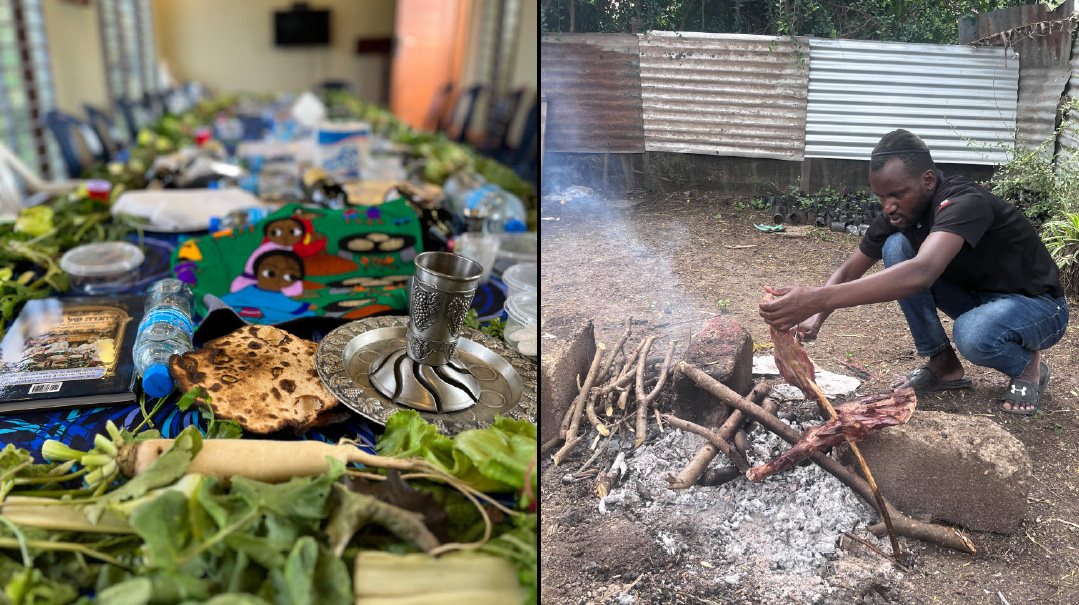
As per their tradition, the entire table becomes a Seder plate, and Yehudah was thrilled that we shechted some animals — this would be their first real zeroa in 13 years
Shechted for a Shank Bone
Cooking in Africa is often done over a wood fire. Even people with houses and modern appliances often have an outdoor kitchen in their yard, with big metal pots hung over wooden fires. That’s how Yehudah and Efrat cooked for the Seder. I shechted a number of sheep, goats, and chickens, and as we were kashering the meat over the open fire, Yehudah told me, “I’m so happy you’re here — this will be the first time in 13 years that we will have a zeroa, the shank bone, at our Seder!” Yehudah explained that his father passed away 13 years ago, and he was the shochet. They didn’t have access to kosher chickens or meat for Pesach since his father died. (We just take it for granted that we go to the supermarket and buy some frozen chicken legs or a meat bone. We complain about the lines, about the prices, but sometimes we need to stop and appreciate how easy it is for us to fulfill mitzvos in ways our ancestors could not imagine.)
I asked Yehudah what they used instead, and he said that they would roast a leek, which looks like a long bone.
The Seder began, and in addition to the immediate family, a number of young men who live in the area and are part of the kehillah joined, along with a few Israelis, and Yehudah’s sister and brother-in-law and their boys. Yemenites keep the table covered until they begin to tell the story of the Exodus from Egypt, and once the cover comes off, the view is stunning. Green lettuce, scallions, celery, and radishes are arranged beautifully all around the table itself. Throughout the Seder, whenever one of the kids got up to read, they were handed a hardboiled egg which they held around their forehead — a Yemenite custom meant to encourage the kids to ask questions.
Their charoses is called doukha, based on the Talmud’s description of charoses being ground and mashed with a mortar and pestle.
“My wife and children and I always make the doukha together,” Yehudah told me. “We sit on low stools and grind the ingredients in a wooden kinuh (bowl) and mix it properly until it looks like the way our fathers made it in Yemen. This was a ritual that was passed down to the children and grandchildren, including my own children. Why the grinding? Because the doukha is a rich blend of dates, raisins, almonds, pecans, and sweet wine, seasoned with lots of cinnamon, cardamom, and cloves. Doukha is like the soft cement that the Banu Yisrael used when they were slaves in Egypt.
“In addition to the traditional four questions,” Yehudah continued, “one of the children recites the Machabar, a lengthy monologue in Arabic that summarizes in a very humorous and easy to understand way the Exodus from Egypt. The child holds an egg while saying this, and everyone at the table corrects the Arabic pronunciation in good spirit. The original reason for this was so that the women and children, who did not speak Hebrew in Yemen, would understand the story of Yetziat Mitzrayim. In East Africa we do it in Swahili, Arabic, and English. After the Machabar, the leader of the Seder takes the afikomen, which is wrapped in a tallit, slings it over his shoulder, and tells everyone that he is walking to Jerusalem. Everybody follows him out of the room in a line until he returns and the Seder reconvenes.”
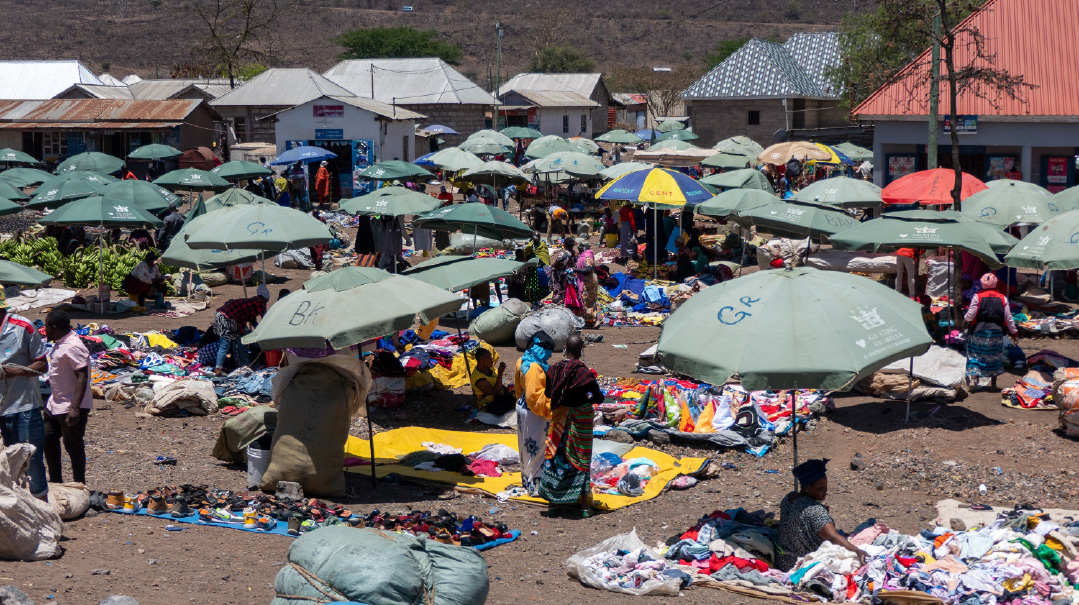
How many other hidden Jews are still living under the radar in Arusha and the surrounding towns, afraid to come out and reveal their heritage?
Hidden by the Tribe
The afikomen was found, the Seder ended, and now it was time for our 30-minute walk back to our hotel along thick, muddy roads in pitch blackness. For our safety, a group of the young men walked us back, including a fellow named Daniel. I had met Daniel before — he reads Hebrew perfectly and is often the chazzan in the shul. Unlike others in the kehillah who are of Yemenite origin, Daniel looks African. It turns out that his ancestors fled inland when being Jewish was dangerous, and they lived with the nomadic Masai hunter tribes. While his parentage is not completely Jewish, he identifies as a Jew, and is essentially mitzvah-observant.
Daniel graduated high school, and then opened a small store in the town. But the store closed down during Covid, and he returned to his mother’s tiny village six hours away in the savannah in order to hunker down. This was one of his first trips back to the city. I asked him how he managed being the only Jew in the middle of the African countryside living in a tiny village among non-Jews. Well, he once got arrested for putting on tefillin, when the locals thought he was doing some black magic.
Daniel keeps Shabbos and eats kosher — only vegetables and maybe some fish if he can afford it. He cooks for himself, bakes his own challah, davens by himself. He told me he was engaged — to a 17-year-old Muslim who he’s known since they were children. They will be married when she finishes high school. He said she’s happy to become Jewish, and her father doesn’t really care. When the time is right, she will come to live in Yehudah’s house for a year to learn how to keep a Jewish and kosher home.
The Secret Is Out
Yehudah shared with me about numerous other secret Jews. While not devout like he is, they still keep their Jewish heritage. They are afraid to come out and none have ever been willing to meet me before, but Yehudah did arrange a meeting with us during Chol Hamoed. We’d traveled to a small rock island in the Indian Ocean that was reachable by boat or by foot only when the tide was out. We were met by “Muhammed” (not his real name, for his safety). Muhammed is a friendly, garrulous man who picked us up in his car. I already knew from Yehudah that he worked for unnamed government agencies around the country. With offices everywhere including at the airport, and various scientific institutes in the country, he never said that he was Jewish but would constantly refer to me as “my brother,” and seemed really happy to spend time with us.
He didn’t mention his heritage, but it was clear why he was with us and wanted us to come to his house. So we went, over dirt roads deep into a Muslim village in the jungle with the muezzin calling for mosques — which seemed to be everywhere as men scurried about in long white robes with Muslim head coverings. Once in his house, he introduced us to his non-African, religious-looking Muslim wife, yet it was clear he was seeing me as his Jewish brother. Muhammed’s brother came over and they started telling us about their Jewish parents. They even still have some books in Hebrew that they keep hidden. When I asked if he goes to pray in the mosque, he said he does sometimes, but not really. “I really pray at home… I can tell you about it over the phone, not here.”
*
Sitting in the house of an apparent Muslim, who secretly davens and is proud of being Jewish by birth while his own children know nothing about his heritage, made me think about and value what we have. Scattered throughout the Muslim world are many secret Jews, or those who know they have Jewish roots but have no connection to that and would endanger their lives if their secret got out. Yehudah, on the other hand, proudly announced his heritage, and has been blessed with success in helping many people get back to their roots. This year we are here in darkest Africa… Next year we should all be in a rebuilt Yerushalayim.
(Originally featured in Mishpacha, Issue 1007)
Oops! We could not locate your form.


